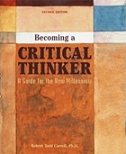From Abracadabra to Zombies | View All
Better World Technologies and United Community Services of America
"Dennis Lee has broken a lot of laws, but he hasn't broken the laws of thermodynamics." --Robert Park
"...when I hear a guy talking about God and money in the same breath I get the feeling that it's Money that's doing the talking." --Eric Krieg
This swell sounding outfit is run by Dennis Lee. With a company name like this you would think the first thing you'd find on their website would be some kind words about helping the community create a better world. Instead, the very first line tells us that the group has "enemies that do not wish for us to succeed." Is this man paranoid, or is this a tactic aimed at appealing to a certain kind of mentality? Perhaps it is a little of each.
The main product of this outfit--I'll refer to it as BWT--is free electricity produced by devices that violate known laws of physics. The product isn't quite ready yet, but you can still buy a franchise for somewhere between $30,000 and $100,000 and begin selling free energy and other unique devices. If you hurry and act how, you can become the first on your block to join Lee's newly formed Tesla Society.
Lee has been making claims about his ability to deliver free energy for the past quarter of a century, yet nobody has ever seen an actual demonstration of a working free energy device. Others with knowledge of engineering (Krieg) and physics (Park) have published comments on why they don't trust Lee's claims. He doesn't seem to know the difference between an amp and a volt; he thinks gravity is a source of energy. He uses the tactics of the demagogue rather than the scientist. His demonstrations are deceptive and dishonest. He preaches and condemns rather than argue and demonstrate in full view of knowledgeable scientists. His followers seem more like a cult than a group of technologically savvy investors. He's never published a paper in a scientific journal. He can't get a patent. He been accused of fraud, thrown in jail, etc.
Lee's followers must have a lot of faith. In fact, Lee travels from city to city and holds "demonstrations" that have been described in terms that make them sound like revival meetings. There are ample references to God, who has picked Lee to make the world a better place, and the Doubting Thomases, those who want to see a real demonstration of the products. He divides the world into enemies and his merry band who just want to make the world a better place and get rich while screwing the electric company. The enemies are critics, scientists, journalists, the government and other co-conspirators who want to see Lee prove his claims about perpetual energy machines by actually demonstrating one. Lee seems to hold his following more by appealing to their distrust of scientists and the government than by providing solid evidence for his claims. Robert Park notes that Lee's defenders are skeptical to a fault. They're so skeptical and mistrustful of science and the government that they have become vulnerable and gullible to hucksters and con men claiming to be doing God's work. It is very difficult for even the best of critical thinkers to stifle wishful thinking and self-deception when an appeal is made to greed. It is nearly impossible when the appeal to an overly skeptical religious person is joined with the promise that one is smiting God's enemies and making the world a better place by providing free energy.
Others, such as Joe Newman have also been promising free energy for many years, using the same tactics and having the same kind of success as Mr. Lee, i.e., success at building up a following without producing the goods.
To paraphrase Jacob Needleman: Be skeptical, but not so skeptical that your brains fall out.
further reading
Examining the Amazing Free-Energy Claims of Dennis Lee by Eric Krieg
Eric's History of Perpetual Motion and Free Energy Machines
New Mexicans for Reason and Science on Dennis Lee
More Free Energy and Hot Air by Milton Rothman
Park, Robert L. Voodoo Science: the Road from Foolishness to Fraud (Oxford University Press, 2000).
more Too Good
to Be True
Last
updated 12/09/10



